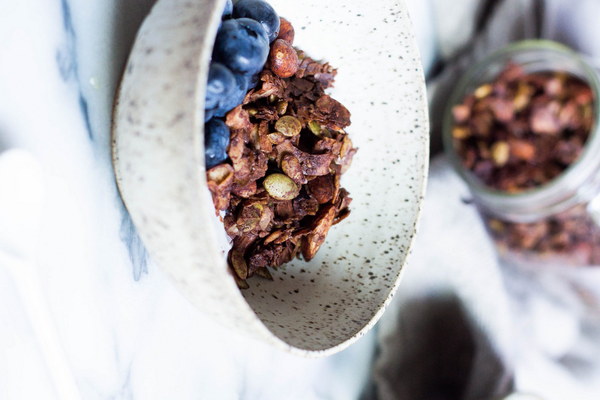Nurturing Little Liver Legends A Comprehensive Guide to Childrens Liver Health
In the bustling world of childhood, where energy and curiosity run wild, it's easy to overlook the silent guardian of our children's health—the liver. The liver plays a crucial role in detoxification, metabolism, and nutrient processing, making it essential to nurture this vital organ from an early age. Here's a comprehensive guide to ensuring your child's liver remains robust and healthy.
Understanding the Liver's Role in Children's Health
The liver is like a multitasking superhero, performing over 500 functions in the body. In children, it's especially important because their bodies are still developing and are more susceptible to toxins and infections. Here's a breakdown of some of the liver's key responsibilities:
- Detoxification: The liver filters out harmful substances, including toxins from medication, pesticides, and pollution.
- Metabolism: It helps break down nutrients from food into usable energy and stores excess nutrients for future use.
- Blood Clotting: The liver produces clotting factors that prevent excessive bleeding.
- Bilirubin Processing: It processes bilirubin, a byproduct of red blood cell breakdown, which is essential for healthy skin and eyes.
How to Nourish Your Child's Liver

1. Balanced Diet: A well-rounded diet rich in fruits, vegetables, whole grains, lean proteins, and healthy fats is the foundation for liver health. Here are some food choices that are especially beneficial:
- Fruits and Vegetables: High in antioxidants and fiber, they help reduce the burden on the liver.
- Lean Proteins: Fish, poultry, and legumes are excellent choices, providing the necessary amino acids for liver function.
- Healthy Fats: Avocados, nuts, and olive oil are sources of healthy fats that support liver health.
- Green Tea: This herbal tea is rich in antioxidants and can help reduce liver inflammation.
2. Hydration: Adequate water intake is crucial for the liver to function effectively. Encourage your child to drink plenty of water throughout the day.
3. Limit Processed Foods and Sugar: Excessive sugar and processed foods can lead to fatty liver disease, a growing concern among children. Monitor their intake and opt for healthier alternatives.
4. Physical Activity: Regular exercise helps improve liver function and aids in maintaining a healthy weight, reducing the risk of non-alcoholic fatty liver disease.
5. Avoid Harmful Substances: Keep your child away from alcohol, tobacco, and other harmful substances that can damage the liver.
Protecting the Liver from Toxins
Toxins are lurking everywhere, from the air we breathe to the food we eat. Here are some strategies to minimize exposure:
- Air Quality: Ensure your home has good ventilation and consider using air purifiers to remove harmful particles.
- Clean Products: Opt for non-toxic household cleaners and personal care products.
- Safe Water: Use filtered water for drinking and cooking to avoid contaminants.
- Vaccinations: Keep up with vaccinations to protect against liver diseases like hepatitis.
Regular Check-Ups and Monitoring
It's important to monitor your child's liver health regularly. Routine check-ups can help detect any potential issues early on. Pay attention to any changes in your child's behavior, appearance, or digestion, as these could be signs of liver problems.
Conclusion
Nurturing your child's liver is an essential part of ensuring their overall health and well-being. By providing a balanced diet, encouraging physical activity, and minimizing exposure to harmful substances, you can help your child develop a strong and resilient liver. Remember, prevention is key, and taking proactive steps now can have lifelong benefits.









